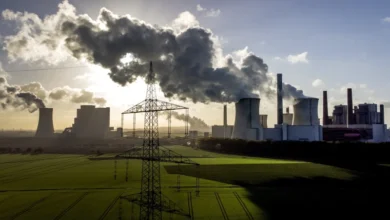“India criticises rich nations’ climate inaction, calls for equity in Global Stocktake”
India's position underscores the need for a just and equitable approach to combating climate change, aligning with the Paris Agreement's goals.

India has presented its expectations and priorities regarding the Global Stocktake, a critical two-year UN review assessing global progress towards the Paris Agreement’s goals. This process will conclude during COP28 in Dubai.
India strongly emphasizes several key points to address climate change effectively.
1. Addressing Pre-2020 Gaps: India stresses the importance of addressing issues that existed before 2020. They believe that addressing these gaps is crucial for building a foundation for future action.
2. Equity as a Priority: India insists on considering equity as a central concern in global climate efforts. They want developed nations to align their emissions reduction efforts with their historical responsibilities.
3. Lack of Ambition Among Developed Nations: India highlights a significant lack of ambition among developed countries in combating climate change, particularly in the period before the Paris Agreement. They call for acknowledging this issue and taking it into account for future actions.
4. Support for Developing Nations: India emphasizes the need for developed nations to provide support to developing countries in terms of finance, technology development and transfer, and capacity building. This support is essential for developing nations to participate effectively in climate action.
5. Integrating Climate Action with Development Goals: India insists that the Global Stocktake outcome should promote climate action while considering poverty eradication, sustainable development, economic diversification, and closing social and economic gaps between developed and developing nations.
6. Historical Responsibility: India argues that historical emissions should be a key factor in determining each country’s responsibility for climate action. They stress the principle of equity and the Common but Differentiated Responsibilities and Respective Capabilities (CBDR-RC) principle.
7. Opposition to Alternative Classifications: India opposes alternative classifications of developing countries, such as “major emitters,” “G20 partners,” and “other developing and emerging economies,” as these overlook national circumstances and equity considerations.
8. Accountability for Emission Reductions: India calls for science-based information to assess whether Annex-I countries (developed nations) are on a low-carbon and -resilient pathway. They question whether these countries have invested in low-carbon technologies.
9. Cumulative Historical Emissions: India highlights the importance of considering cumulative historical emissions when measuring change impacts, noting that all countries have not contributed equally to the problem.
10. Responsibility of Developed Countries: India stresses that developed countries, which have historically contributed the most to greenhouse gas emissions, must lead in addressing change issues and supporting developing nations.
11. Climate Finance: India recognizes the critical role of finance, particularly for developing countries, in enabling effective climate action.

India’s stance on the Global Stocktake emphasizes addressing pre-2020 gaps, ensuring equity in climate actions, holding developed nations accountable for their historical emissions, and providing support to developing countries. They advocate for action that integrates with broader development goals and rejects alternative classifications that ignore equity principles. India’s position underscores the need for a just and equitable approach to combating climate change, aligning with the Paris Agreement’s goals.
Please, also have a look into : PM Rishi Sunak made UK’s largest-ever donation to the Green Climate Fund of $2 billion during G20



